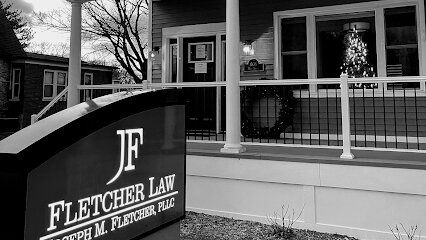Best Antitrust Litigation Lawyers in New York City
Share your needs with us, get contacted by law firms.
Free. Takes 2 min.
List of the best lawyers in New York City, United States
1. About Antitrust Litigation Law in New York City, United States
Antitrust litigation in New York City centers on challenging practices that restrain competition or create monopolies. In the United States, the core federal statutes are the Sherman Act, the Clayton Act, and the Federal Trade Commission Act. These laws authorize both government enforcement and private civil actions in federal or state courts. In NYC, plaintiffs frequently pursue antitrust claims in federal courts in the Southern District of New York (SDNY) or in New York state courts under state law.
Private lawsuits can involve claims such as price fixing, bid rigging, market allocation, and monopolization. Attorneys for plaintiffs and defendants alike rely on economic analyses and expert testimony to prove harm to competition and the appropriate measure of damages. For residents of New York City, local courts and federal courts provide avenues to seek damages, injunctive relief, and attorney’s fees where antitrust violations are shown.
Antitrust laws promote competition and protect consumers against restraints of trade and monopolistic practices.
Competition is a cornerstone of the U.S. economy, and federal agencies routinely review business practices to ensure markets remain open and fair.
In New York, the state also enforces antitrust and competition laws, which can complement federal actions. NYC residents may encounter both federal and state avenues, depending on the facts and defendants involved. The interaction between federal rights of action and New York state remedies can shape strategy and timelines.
2. Why You May Need a Lawyer
- A hospital network in New York City allegedly coordinates pricing for imaging services across several facilities, harming competition and patient choice.
- A group of NYC construction firms colludes to rig bids on a city infrastructure project, denying fair competition and inflating project costs.
- A set of NYC medical suppliers allegedly share market information to fix prices for essential drugs or devices used by New York clinics.
- A large digital platform based in New York implements self preference and exclusive dealing that disadvantages competing apps in the local market.
- A group of NYC retail chains allegedly engages in market allocation to limit competition for key consumer goods in Manhattan and Brooklyn.
- A no-poach or wage-fixing agreement among certain NYC professional services firms harms workers and undermines competitive pay in the local market.
Holding an attorney or solicitor with antitrust experience helps you evaluate claims, gather evidence, and navigate complex procedures. In New York City, you may need counsel for jurisdiction analysis, class action eligibility, and expert economic analysis. A local attorney can also coordinate with federal and state authorities when appropriate.
3. Local Laws Overview
New York City relies on federal antitrust law and New York state competition statutes. The following are key authorities frequently cited in NYC litigation.
Sherman Antitrust Act (federal)
The Sherman Act generally prohibits unreasonable restraints of trade and unlawful monopolization. It provides civil remedies for private plaintiffs and is enforced by the U.S. Department of Justice and the Federal Trade Commission. The Act's core provisions are used in NYC antitrust suits in federal court.
Effective: 1890. The statute has shaped modern competition law and remains central to antitrust strategy in New York City.
Official reference: U.S. Department of Justice - Antitrust Laws
Clayton Act (federal)
The Clayton Act addresses specific anticompetitive practices, including price discrimination, exclusive dealing, and merger restraints. It complements the Sherman Act by prohibiting certain behaviors that tend to lessen competition. It provides private rights of action for damages in many instances.
Effective: 1914. It remains a foundational statute for many private antitrust actions in New York City.
Official reference: U.S. Department of Justice - Antitrust Laws
Donnelly Act (New York General Business Law)
The Donnelly Act, codified as New York General Business Law sections 340 et seq., prohibits monopolistic practices and restraints on trade within New York. It is a key state instrument for pursuing antitrust violations in New York courts, including actions brought by the New York Attorney General or private plaintiffs.
Historical note: The Donnelly Act dates to the late 19th century and remains active in New York State law.
Official reference: New York General Business Law
New York’s Donnelly Act is frequently cited in state antitrust actions that address monopolistic practices and restraints of trade within New York.
4. Frequently Asked Questions
What is antitrust litigation in New York City?
Antitrust litigation challenges practices that restrain competition or create monopolies. It can arise under federal statutes or New York state law and may seek damages, injunctive relief, or other remedies.
How do I know if I have a private antitrust claim?
Consult an attorney to assess whether you were harmed by price-fixing, market division, bid rigging, or monopolistic conduct. Evidence often includes contracts, communications, and market data.
What is the difference between Sherman Act and Clayton Act claims?
Sherman Act claims focus on restraints of trade and monopolization. Clayton Act claims address specific practices like price discrimination and mergers that may lessen competition.
How long do antitrust cases take in New York City?
Timeline varies by complexity and court. Private actions in SDNY can take several years from filing to trial, with preliminary discovery and potential settlements along the way.
Do I need to hire a local NYC antitrust attorney?
Local familiarity helps with court procedures, local rules, and key witnesses. An attorney with NYC experience can coordinate with local experts and opposing counsel more efficiently.
Can I join an existing antitrust class action?
Class action eligibility depends on the case posture and common questions of law or fact. An attorney can evaluate whether class treatment is appropriate for your situation.
Should I accept an early settlement offer?
Settlement decisions depend on damages, proof, and likelihood of success at trial. An attorney can assess whether a settlement reflects acceptable compensation for your injury.
Is antitrust litigation expensive?
Costs vary with discovery, expert testimony, and trial length. Some firms offer alternative fee arrangements or contingency options for eligible cases.
What is discovery in antitrust cases?
Discovery involves exchanging documents, electronic data, and deposition testimony to prove or defend claims of antitrust violation.
Where are antitrust cases heard in NYC?
Antitrust cases may be filed in SDNY or in New York State Supreme Court, depending on the claim and jurisdiction. The choice of court affects procedural rules and timelines.
What role do experts play in antitrust cases?
Economists and industry experts analyze damages, market structure, and competition effects to support or oppose claims. Their testimony can be pivotal in winning or settling.
How much can I recover in damages?
Damages depend on economic loss, evidence of antitrust harm, and proof of defendant responsibility. Courts may permit treble damages under federal law in some cases.
5. Additional Resources
- U.S. Department of Justice - Antitrust Division - Enforces federal antitrust laws and publishes guidance for businesses and individuals.
- Federal Trade Commission - Protects competition and provides consumer and business resources related to antitrust matters.
- New York Attorney General - Antitrust Bureau - Enforces New York state antitrust and competition laws within New York.
6. Next Steps
- Identify potential antitrust issues you face and gather related documents within 1-2 weeks. Collect contracts, emails, price lists, and communications with competitors or suppliers.
- Schedule a consultation with a New York City antitrust attorney within 2-4 weeks. Prepare a summary of facts and potential witnesses for the meeting.
- Confirm jurisdiction and choose between federal or state avenues. Your counsel will advise if SDNY, another federal district, or a New York state court is appropriate.
- Discuss fee arrangements and expected costs. Ask about hourly rates, retainer requirements, or potential alternative fee structures.
- Decide on potential claims to pursue, including Sherman Act, Clayton Act, or Donnelly Act theories. Your solicitor or attorney will help frame the legal theory.
- File a complaint or join an existing action if applicable. Your lawyer will handle pleadings, service, and initial motions within weeks of agreement.
- Engage economic experts and facilitate discovery. Coordinate data requests and depositions to prove antitrust impact within 3-6 months.
Lawzana helps you find the best lawyers and law firms in New York City through a curated and pre-screened list of qualified legal professionals. Our platform offers rankings and detailed profiles of attorneys and law firms, allowing you to compare based on practice areas, including Antitrust Litigation, experience, and client feedback.
Each profile includes a description of the firm's areas of practice, client reviews, team members and partners, year of establishment, spoken languages, office locations, contact information, social media presence, and any published articles or resources. Most firms on our platform speak English and are experienced in both local and international legal matters.
Get a quote from top-rated law firms in New York City, United States — quickly, securely, and without unnecessary hassle.
Disclaimer:
The information provided on this page is for general informational purposes only and does not constitute legal advice. While we strive to ensure the accuracy and relevance of the content, legal information may change over time, and interpretations of the law can vary. You should always consult with a qualified legal professional for advice specific to your situation.
We disclaim all liability for actions taken or not taken based on the content of this page. If you believe any information is incorrect or outdated, please contact us, and we will review and update it where appropriate.

















